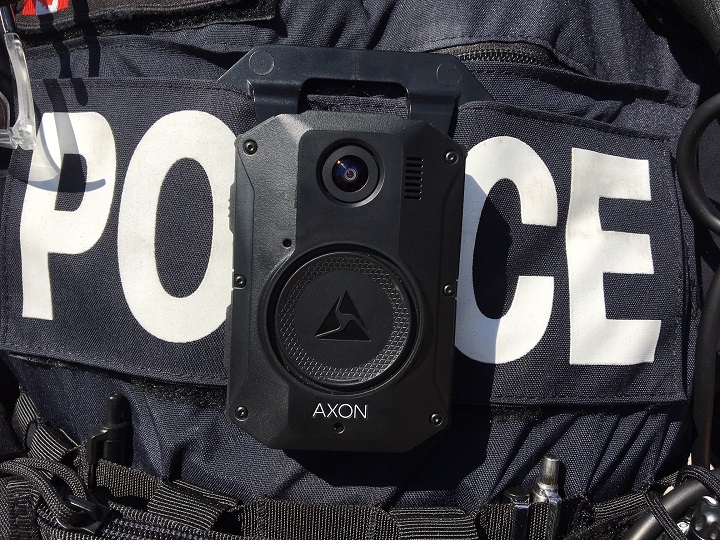A motion heading to Winnipeg’s Executive Policy Committee (EPC) this week could put body cameras one step closer to being a reality for the Winnipeg Police Service (WPS).

The Winnipeg Police Board approved the idea in early June, which could see the city spend some $6.8 million in 2022 to purchase the hardware and other critical systems for the project.
The cost estimates run between $4.8 million and $5.5 million each year from 2023 onward.
“The BWC (body worn cameras) program will provide the Winnipeg Police Service with the ability to collect digital evidence, secure it in a cloud environment and disclose it for criminal proceedings and conduct complaints in a more efficient and effective manner,” the public service wrote in its report.
“The new process will provide greater accountability and transparency of police interactions, which will enhance community trust in police.”
The report says the city would also need to partner with a third-party company for cloud-based storage, and hire 16 new full-time employees; all but two being civilian members.

Get breaking National news
The WPS is already working with that third-party company, which the report says is the same one that owns and distributes conducted energy weapons (CEWs) that the force uses.
It says an officer’s body camera, along with the cameras of nearby officers, could automatically be activated when one member draws their CEW.
The city may also save some money by bundling the CEWs with the body cameras.
Benefits
According to the report, the benefits of body cameras fall into two main categories: police accountability and digital evidence.
“The public’s level of confidence in police agencies across North America has gradually declined over the years,” the report reads in part.
“Video footage of use of force encounters between officers and members of the public will provide irrefutable evidence to describe the events as they unfolded.”
The authors add other Canadian police agencies found a 50 per cent improvement in resolving public complaints following the addition of body cameras.
The timing works well, according to the report, since the WPS is mandated to upgrade its 911 service, and the additional infrastructure required for the cameras will help prepare for the next generation of 911.
History
The WPS has been pursuing body cameras for over 10 years, the public service says, and even managed to secure $1 million for a pilot project in 2016.
However, a review found a full-scale rollout wasn’t viable at the time, due to projected cost overruns.
Further complications arose related to video storage, since cloud-based storage wasn’t in wide usage at the time.
Since then, private companies have invested more in cloud-based storage, which brought the idea back to life.
The report will go before EPC on Wednesday.





_848x480_1397405763961.jpg?h=360&w=540&crop=1&quality=70&strip=all)



Comments